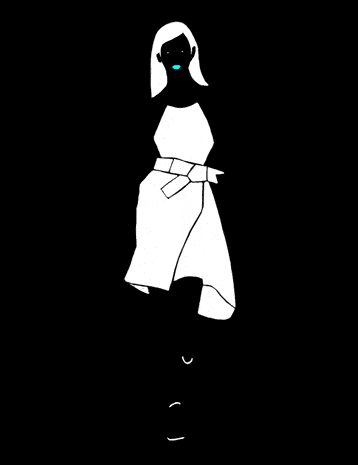Xtreme Vogue London Desk: Sarah Marshal
Each December, for more than two decades, Barbara Walters hosted Barbara Walters’ Ten Most Fascinating People of the Year, a breezy album of interviews with newsmakers as defined, of course, by Barbara Walters. Take 1999, for example. Who else but Walters would think King Abdullah II of Jordan, Joe Torre of the Yankees, soap-opera empress Susan Lucci, and a circus ringmaster named Jonhathan Lee Iverson belonged together? Jesse Ventura, another honoree that year, must have represented the ideal guest in Barbara’s Ultimate Green Room: pro-wrestler-turned-governor.
If TV adhered to truth-in-packaging rules, the show would have been called Barbara Walters and the Ten Other Most Fascinating People of the Year. By the time Barbara Walters died today, at the age of 93, no TV journalist had so consistently and over such a long period of time been part of the story. From her beginning as the “Today Girl” on NBC’s Today in 1962, Walters credited her longevity partly to working in an era when TV network news dominated, allowing her in 1977, for example, to nudge Middle East diplomacy forward and score a joint interview with Menachem Begin and Anwar Sadat in Jerusalem. As Walters wrote in her memoir, Audition, “In this time of instant Internet news, cell phones that take videos, and a profusion of blogs where everyone is a reporter, there will be little chance for any single person to have had the kind of career that I’ve had.”
Knowing how to be solicitous around famous people explained a large part of Walters’ success, but what toughened her was competing in network news, “a boys’ club that didn’t welcome newcomers.” No matter what the slight—being told by a young Don Hewitt, who later created 60 Minutes, that she didn’t have “the right looks” for TV, earning much less than her co-hosts during her 15-year Today show stint, being condescended to by Harry Reasoner on-air when she left Today to serve as his co-host on ABC’s Evening News—Walters persevered.
She did not invent the celebrity TV interview, but her ability to snag guests (a skill learned in her early days as a booker at Today) and grill them in a way that warmed rather than singed saved her career after the Reasoner debacle. Movie stars, presidents, convicted killers, dictators—they all subjected themselves to Walters’ style of empathetic nosiness. She could be easily parodied, as Gilda Radner did so memorably as Baba Wawa on Saturday Night Live, an impersonation that deeply upset her. Decades later, Walters was still setting the record straight in Audition: “By the way, I never had trouble with my l’s, only my r’s, but it made it funnier.” So twue.
Walters could be unfairly mocked; her infamous question to Katharine Hepburn about what kind of tree she would prefer to be followed Hepburn’s statement that she had become “like a tree.” (Answer: a white oak.) And Walters herself regretted her admonition to President-elect Jimmy Carter in 1976 to “Be wise with us, Governor. Be good to us.” But an equally derided moment in that same interview—asking Carter and his wife if they slept in a double bed or twin beds—now seems as tame as inquiring if they take their coffee black or with milk.


